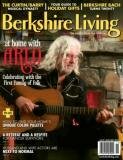
MUSIC REVIEW: Robert Spano leads the BSO at Tanglewood
TANGLEWOOD
Boston Symphony Orchestra
August 15, 2010
Reviewed by Clarence Fanto
 (LENOX, Mass., Aug. 16) — The Boston Symphony's sixth-weekend programming was all-American — Northern and Southern Hemisphere, plus the Boston Pops Film Night salute to Hollywood Golden Age composers and to Steven Spielberg, led by John Williams to celebrate his 30th summer at Tanglewood.
(LENOX, Mass., Aug. 16) — The Boston Symphony's sixth-weekend programming was all-American — Northern and Southern Hemisphere, plus the Boston Pops Film Night salute to Hollywood Golden Age composers and to Steven Spielberg, led by John Williams to celebrate his 30th summer at Tanglewood.
The Sunday matinee led by Atlanta Symphony Music Director Robert Spano — a tireless and imaginative advocate of stimulating, contemporary programming by American composers — explored connections between European musical forms and traditions and the West African roots of jazz.
The BSO musicians showed off their jazz chops in Leonard Bernstein's Prelude, Fugue and Riffs, commissioned by Woody Herman, premiered on NBC's Omnibus series in 1955 with Benny Goodman, and in this performance featuring a pumped-up trumpet and sax section and strong solo work by principal clarinetist Thomas Martin. The brief, one-movement piece combines Stravinsky-like rhythmic contortions with a written-out depiction of a jam session. The versatility of the BSO's brass and percussion players was on display to great and showy effect.
Spano and the players also mastered the intricacies of Gunther Schuller's Seven Studies on Themes of Paul Klee — the orchestra, especially principal flutist Elizabeth Rowe performing off-stage, was in remarkable form during this atmospheric, evocative music based on works by the great painter at various stages of his career. In the Antique Harmonies section, Schuller created a musical canvas of winds, trumpets and violins; in Twittering Machine, serial techniques are employed to create a series of beeps, burps squeaks and rasps. The Arab Village musical portrait evoked Arabic music conveyed through Schuller's distinctive voice. He helped program this summer's Festival of Contemporary Music at Tanglewood, a welcome return for the former administrator and faculty member of the TMC.
Bookending these rarely-performed works were two familiar American masterpieces — Gershwin's 1928 An American in Paris (complete with four Parisian taxi horns, celesta, sax and a dizzying array of percussion) and his jazz, blues and ragtime-influenced Piano Concerto in F, performed with demonic energy and flair by Jean-Yves Thibaudet with strong support from the orchestra despite an occasionally rough patch. One more rehearsal would have smoothed out the kinks, but with this amount of vitality, spontaneity and sheer pianistic and orchestral energy, who needs perfection?
The concert represented innovative programming, a welcome departure from the tried-and-true, and garnered a highly enthusiastic response by the moderate-sized audience. Spano is known for his creative approach to the orchestral repertoire and his support of living American composers has been most impressive over the past two decades, especially during his directorship of the Brooklyn Philharmonic; he has continued this approach in Atlanta, where he has served for the past decade to major acclaim.
Whenever a top-five American orchestra might need to search for a new music director, Spano deserves a spot on a short list of eligible contenders. If his Sunday matinee at Tanglewood was a representative sampling of what he would bring to a tradition-minded band, and surely it was, administrators, managers and trustees should take careful note.
Clarence Fanto reviews classical music for Berkshireliving.com and is a contributing editor for Berkshire Living.

 Delicious
Delicious Digg
Digg StumbleUpon
StumbleUpon Propeller
Propeller Reddit
Reddit Magnoliacom
Magnoliacom Newsvine
Newsvine Technorati
Technorati
